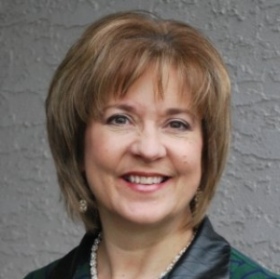 “You’re free to go.” Beautiful words to the ears of a prisoner. Or are they? Freedom does, in fact, raise weighty questions for the newly released offender: Where will I go? How will I get money to live? Who will want to hire somebody like me? Will anyone want anything to do with me? Where do I start?
“You’re free to go.” Beautiful words to the ears of a prisoner. Or are they? Freedom does, in fact, raise weighty questions for the newly released offender: Where will I go? How will I get money to live? Who will want to hire somebody like me? Will anyone want anything to do with me? Where do I start?
After years of incarceration, freedom brings seemingly insurmountable challenges, including fears of not finding housing, a job, friends – and most of all, strength to beat past behaviours of addiction and crime.
Dennis (not his real name) is learning to readjust to ‘life on the outside.’ Thanks to NOLA (No One Leaves Alone) – a community, volunteer based program of M2/W2 – Dennis has a group of supporters helping him reintegrate into the community. These people, who have become Dennis’s friends, are healthy role models who offer spiritual guidance and prayer support as well as practical assistance.
For those folks rejected because of their criminal history, NOLA calls them to something better. Their goal is to assist newly released prisoners to lead a crime-free, productive life through strategic support, friendship and accountability over an 18-month period.
Many offenders have never experienced loving family relationships or learned everyday skills like doing laundry, cooking and budgeting, or how to deal with their emotions appropriately. Many grew up in abusive situations. Their struggle with issues such as addiction, anger, low self-esteem and distrust of others is an uphill battle that requires strong, loving accountability and support.
Dennis was chosen to participate in NOLA’s pilot project, which is still being assessed. NOLA offers intense support to a small number of people who have the greatest risk of reoffending – not because they’re dangerous, but because the barriers they face are so huge they often can’t be successful at life outside, prompting them to reoffend just to get back into the environment they know.
The NOLA program includes a rigorous screening assessment process at the front end to avoid putting volunteers in a dangerous or manipulative situation. Program participants are subject to specific criteria.
• They must have been a participant in the M2/W2 program, which includes an established relationship with a matched M2/W2 visitor and staff.
• They must have a reference from the institution stating their suitability and safety.
• They must have a desire to live a law-abiding, productive life outside of prison, and recognize their need for help to be successful.
• They must be someone who faces significant barriers such as a mental health issue, addiction, disability making it hard to find work, no family support, or trauma history.
Each newly released offender will have a support team of four to six volunteers that often includes M2/W2 visitors with whom there is an established friendship. Six months before the offender’s release, the team begins building a relationship with them. Building friendships is key to staying on track. For someone who has experienced constant rejection, being surrounded by caring friends gives them more reason to do the right thing.
Volunteers with NOLA receive training and never work in isolation; they are part of a support circle that includes staff. “It’s very much a team-based approach,” says Colette Squires, director of program development for NOLA.
At completion of the program, NOLA staff will keep in touch with the participant for another year, to evaluate whether the person is successful in meeting goals, which might include learning basic life skills or managing personal issues or finishing high school.
“If those goals fail, they tend to fail,” says Squires, “We’re trying to develop their strengths, their assets, their capacity – because the more successful they are, the more likely they are not to reoffend.” The hope is that successful graduates of the program will be part of a circle for other offenders.
In spite of multiple barriers to success, Dennis is doing well so far. It’s been a tough go, though.
Dennis says: “NOLA support is helping me stay clean, because they support my recovery from drugs. I have people to do things with, go places with. I know and trust my NOLA circle . . . Through the program I’m meeting new people and making friends. I’m uncomfortable out in society, so I feel better going places with someone I feel comfortable with. So I really appreciate the time they spend with me, just going for a drive, out for coffee, or when we went geo-caching . . . There were so many things I never did as a kid because my childhood was so messed up, but I’m starting to experience them with my NOLA team. I’m volunteering, too – it feels good to be giving back.”
Still in early stages, NOLA will require a significant number of volunteers first from Metro Vancouver and the Fraser Valley. Anyone interested in volunteering can find out more by contacting NOLA program coordinator Leslie Harder at harder@m2w2.com.
For more than 40 years, M2/W2 Restorative Christian Ministries (based in Abbotsford) has been providing friendship, help and support to prisoners. More than 300 local Christian volunteers visit with prisoners in 11 correctional facilities, providing men (M2) and women (W2) inmates with a listening ear, friendship, a positive role model and years of ongoing relationship. In spite of M2/W2’s ongoing efforts, there are currently 200 inmates still waiting for a match.

